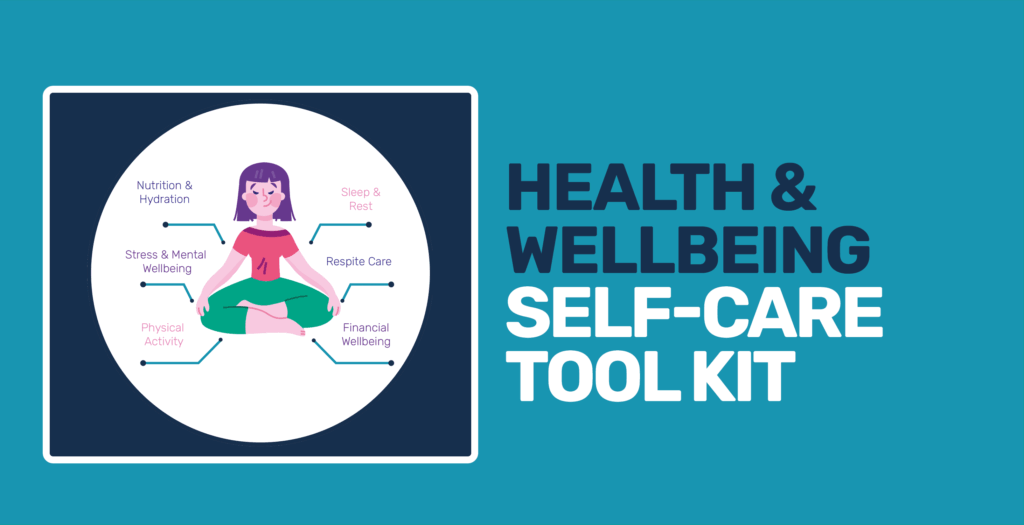Becoming a carer can be a sudden and drastic change. Not only do you have new responsibilities that can affect multiple aspects of your life, you now have a new world of words and terms: EHCP, EOL, DLA, AA, CA, Carers Assessment, and so many more!
That’s where this guide helps. We want to CRACK THE CODE for carers! Below you will find our carer’s glossary to help you understand terms and abbreviations that you may come across in your caring journey.
You can fill in the form to tell us what terms, abbreviations or even concept that you come across that could do with explanation. Then we will add it to the list.
Together, we can…
CRACK THE CODE!
- AA (Attendance Allowance): For those over state pension age needing help with care due to disability.
- CA (Carer’s Allowance): For those caring for someone ill or disabled for at least 35 hours a week.
- (CC) Carers Credit: Carer’s Credit is a National Insurance credit that helps with gaps in your National Insurance record. Your State Pension is based on your National Insurance record.
- DLA (Disability Living Allowance): Former benefit replaced by PIP for most adults.
- DPA (Deferred Payment Agreement): Use home value for care home costs without selling.
- DWP (Department for Work and Pensions): UK government department for welfare, pensions, and child maintenance.
- ESA (Employment and Support Allowance): For those unable to work due to illness or disability.
- PIP (Personal Independence Payment): For those with long-term health conditions or disabilities, helping with extra living costs.
Care Plans
- CHC (Continuing Healthcare): NHS-funded care package for individuals with significant healthcare needs.
- EHCP (Education, Health and Care Plan): Legal document outlining needs of children with special educational needs and disabilities.
- FNC (Funded Nursing Care): NHS contribution towards nursing care costs in a care home.
- ICA (Individual Care Agreement): Tailored care plan based on individual needs.
- IEP (Individual Education Plan): Tailored document for students with special educational needs, outlining specific learning goals and support.
- MDT (Multi-Disciplinary Team): Group of professionals from different disciplines working together to plan and provide care.
Care Needs and Support
- Care needs assessment: Evaluation to determine an individual’s physical, mental, and social care requirements.
- Carer’s assessment: Evaluation to determine what support a carer needs.
- Cognitive function: Ability to process thoughts, including memory, understanding, problem-solving, and decision-making.
- Cognitive load: Mental effort required to process information, which can be overwhelming in complex care situations.
- Community Psychiatric Nurse (CPN): Mental health professional providing support and treatment in community settings.
- Complex needs: Multiple and interconnected health and social care needs.
- ED or Ed Psych (Educational Psychologist): Professional assessing and supporting learning, emotional, and behavioural development of children and young people in education.
- Empowerment: Enabling individuals to have control over their lives and decisions.
- ICB (Integrated Care Board): Organisations planning and commissioning healthcare services locally.
- Respite care: Short-term care for carers, providing a break from caring, either at home or in a care facility.
- SALT (Speech and Language Therapy): Therapy for speech, language, and communication problems.
- SEN (Special Educational Needs) or SEND (Special Educational Needs and Disabilities): Educational requirements for children with learning difficulties or disabilities.
- SENCo (Special Educational Needs Coordinator): Teacher responsible for coordinating special educational needs provision in a school.
- Chronic: A health condition lasting three months or more, often for life.
- DNR (Do Not Resuscitate): Legal order indicating a person does not wish to receive CPR if their heart stops.
- End-of-life care: Care provided to individuals in the final stages of life. We have a podcast episode dedicated to End of Life. You can find it by clicking here.
- HDU (High Dependency Unit): Hospital unit for patients requiring a higher level of care than a general ward, but less than an ICU.
- ICU (Intensive Care Unit): Hospital department providing intensive treatment and monitoring for critically ill patients.
- Palliative care: Care focusing on symptom relief and stress management for serious illness.
- DoLS (Deprivation of Liberty Safeguards): Protects people in care lacking capacity to consent to treatment.
- Deputyship Order: Court-appointed decision-maker for someone who has lost mental capacity.
- No Capacity: Legal term meaning a person cannot make decisions for themselves.
- POA (Power of Attorney): Legal document authorizing someone to make decisions on another’s behalf, often temporary. We have an episode of our podcast dedicated to Power of Attorney. You can find it by clicking here.
- LPA (Lasting Power of Attorney): Similar to POA, but provides long-term security. We have an episode of our podcast dedicated to Power of Attorney. You can find it by clicking here.
Here is your chance to share with us what code you need cracking. Do you regularly come across a term, abbreviation or concept that is confusing? What do you need to be made clearer to you?
Tell us and we’ll add it to the guide!
Just fill in the form below and we will help you to crack the code!
Benefits & Finances
- AA (Attendance Allowance): For those over state pension age needing help with care due to disability.
- CA (Carer’s Allowance): For those caring for someone ill or disabled for at least 35 hours a week.
- (CC) Carers Credit: Carer’s Credit is a National Insurance credit that helps with gaps in your National Insurance record. Your State Pension is based on your National Insurance record.
- DLA (Disability Living Allowance): Former benefit replaced by PIP for most adults.
- DPA (Deferred Payment Agreement): Use home value for care home costs without selling.
- DWP (Department for Work and Pensions): UK government department for welfare, pensions, and child maintenance.
- ESA (Employment and Support Allowance): For those unable to work due to illness or disability.
- PIP (Personal Independence Payment): For those with long-term health conditions or disabilities, helping with extra living costs.
Care Plans
- CHC (Continuing Healthcare): NHS-funded care package for individuals with significant healthcare needs.
- EHCP (Education, Health and Care Plan): Legal document outlining needs of children with special educational needs and disabilities.
- FNC (Funded Nursing Care): NHS contribution towards nursing care costs in a care home.
- ICA (Individual Care Agreement): Tailored care plan based on individual needs.
- IEP (Individual Education Plan): Tailored document for students with special educational needs, outlining specific learning goals and support.
- MDT (Multi-Disciplinary Team): Group of professionals from different disciplines working together to plan and provide care.
Care Needs and Support
- Care needs assessment: Evaluation to determine an individual’s physical, mental, and social care requirements.
- Carer’s assessment: Evaluation to determine what support a carer needs.
- Cognitive function: Ability to process thoughts, including memory, understanding, problem-solving, and decision-making.
- Cognitive load: Mental effort required to process information, which can be overwhelming in complex care situations.
- Community Psychiatric Nurse (CPN): Mental health professional providing support and treatment in community settings.
- Complex needs: Multiple and interconnected health and social care needs.
- ED or Ed Psych (Educational Psychologist): Professional assessing and supporting learning, emotional, and behavioural development of children and young people in education.
- Empowerment: Enabling individuals to have control over their lives and decisions.
- ICB (Integrated Care Board): Organisations planning and commissioning healthcare services locally.
- Respite care: Short-term care for carers, providing a break from caring, either at home or in a care facility.
- SALT (Speech and Language Therapy): Therapy for speech, language, and communication problems.
- SEN (Special Educational Needs) or SEND (Special Educational Needs and Disabilities): Educational requirements for children with learning difficulties or disabilities.
- SENCo (Special Educational Needs Coordinator): Teacher responsible for coordinating special educational needs provision in a school.
Medical
- Chronic: A health condition lasting three months or more, often for life.
- DNR (Do Not Resuscitate): Legal order indicating a person does not wish to receive CPR if their heart stops.
- End-of-life care: Care provided to individuals in the final stages of life. We have a podcast episode dedicated to End of Life. You can find it by clicking here.
- HDU (High Dependency Unit): Hospital unit for patients requiring a higher level of care than a general ward, but less than an ICU.
- ICU (Intensive Care Unit): Hospital department providing intensive treatment and monitoring for critically ill patients.
- Palliative care: Care focusing on symptom relief and stress management for serious illness.
Law & legal terms
- DoLS (Deprivation of Liberty Safeguards): Protects people in care lacking capacity to consent to treatment.
- Deputyship Order: Court-appointed decision-maker for someone who has lost mental capacity.
- No Capacity: Legal term meaning a person cannot make decisions for themselves.
- POA (Power of Attorney): Legal document authorizing someone to make decisions on another’s behalf, often temporary. We have an episode of our podcast dedicated to Power of Attorney. You can find it by clicking here.
- LPA (Lasting Power of Attorney): Similar to POA, but provides long-term security. We have an episode of our podcast dedicated to Power of Attorney. You can find it by clicking here.
CRACK THE CODE
Here is your chance to share with us what code you need cracking. Do you regularly come across a term, abbreviation or concept that is confusing? What do you need to be made clearer to you?
Tell us and we’ll add it to the guide!
Just fill in the form below and we will help you to crack the code!







Social Care